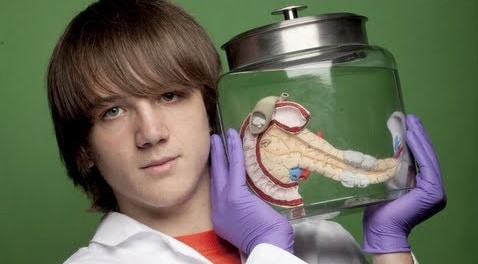Jack Andraka was a high school freshman in 2012 when a close family friend died of pancreatic cancer.
Deeply affected, he was motivated to read up on the disease and found that diagnosis is usually in a late stage when treatment is ineffective and there is a very low survival rate. Jack was shocked at the late detection and decided to develop a pancreatic cancer test.
Jack read all he could find about the disease and developed his idea. His breakthrough came one day when he was sitting in biology class, listening to his teacher talk about antibodies while he read an article about carbon nanotubes. He described nanotubes as “the superheroes of material science,” with amazing mechanical and electrical properties. He realized to screen for a certain protein, he could combine specific antibodies with specific nanotubes and based on the amount of protein present, the nanotubes would change their electrical properties.
He needed lab space to try out his ideas so he e-mailed two hundred researchers. One replied with a yes. This scientist was Dr. Anirban Maitra, a Johns Hopkins pancreatic cancer researcher who has since become Jack’s mentor. Dr. Maitra expected Jack to work for only a few weeks over the summer, but he ended up working for seven months in 2012.
Starting his experiments, Jack had little experience working in a lab and only an eighth grade science education. His research was an intense learning curve. Totally immersed into the laboratory environment, he made many mistakes, such as overheating a month’s worth of cultured cells in the centrifuge.
Jack’s lack of experience, however, gave him a fresh perspective and after seven months of labor, he had a prototype of his remarkably simple test…
To continue reading this article from our partner, Taking on the Giant, click here.








